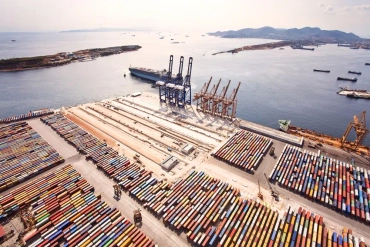
How to import from China in 2020?



Are you interested in learning how to import goods from China? There are plenty of ways to do so, such as via ocean freight or air freight.
Importing from China is a popular option for many businesses abroad, but one can not jump into international trade without first understanding how to ensure a successful China import campaign.
You may be wondering, “Do I need a license for importing from China? Which are my taxes when importing from China to the United States? What are the rules and regulations or customs clearance?”
There’s a lot to understand, but it doesn’t have to be overwhelming Let’s start with the basic.
1. Mind the Rules and Regulations for Importing From China
If there is a specific product you want to import, you’ll have to take the time to research the regulations that you will need to comply with. Clarity is key when it comes to reading up on regulations, and you’ll need to be exceptionally clear on what you’re importing and whether or not it complies with Chinese and home country standards regulations
For example, there are a few different niches that are very sensitive to the importing process. Namely, toys, food, cars, electronic products, textiles, chemicals, cosmetics, and hygiene products and their packaging as heavily regulated.
Regulations will also tend to apply to different economic areas like the U.S. and Canada. Just as well, there will likely be additional specific rules in each individual country for the import of any of the product types listed about.
Look into your home country’s compliance regulations or federal agency. Search for import duties and rules by getting in touch with your chamber of commerce or customs bond:
Be mindful of shipping rates from China as well.
2. Choose the Right Chinese Suppliers
Finding the right supplier is crucial. To start, you’ll need to understand that the importer, meaning you, is responsible for the products that are being imported. If there are any compliance issues or any regulations are not followed, you could find yourself dealing with some serious legal issues, especially if consumers are injured or harmed by the product; look for quality products.
If your supplier is not transparent and provides fake or falsified certification for their supply, your products could be locked up at customs. Unfortunately in the case of China, this scenario is very common. In the best-case scenario, you’ll have some logistical issues and additional costs to work out for delays. In the worst-case scenario, you’ll lose your products forever.
Go with a supplier you wholeheartedly trust. Look into suppliers that are working with your competitors. Take the time to travel to the factories and inspect the products in person. Bring along a specialist in that field that can pinpoint glaring flaws.
3. Focus on the Sales Contracts
Once you’ve snagged an excellent supplier, your sales agreement should be extremely detailed and include a wide range of clauses that detail the specifications for the product, as well as all of the conditions of the shipping cost and owners.
Every aspect of your product needs to be detailed in your contract, including weight, dimensions, logos, materials, packaging, and more... You could even calculate the landed cost to get a clear view of investment.
4. Choose How You Will Transport Internationally
Chinese suppliers prefer to ship under Incoterm EXW, mostly because it places a more strict obligation on the buyer/importer. Because of this, you should try to work through Incoterm FOB. Through this Incoterm, the buyer is responsible for booking freight while the supplier has to have the product prepped and ready on the ship where it will originate from.
COVID-19 has drastically changed the way businesses import from other countries, as well as how we travel. This could last for quite some time, but savvy business owners and logistics consumers are changing the way they approach importing. Follow the iContainer blog today for more in-depth guides to logistics, importing on the global level, freight, and more. Knowledge and staying ahead of the curve are the only ways to keep one’s import campaign stable and dependable.
Related Articles


